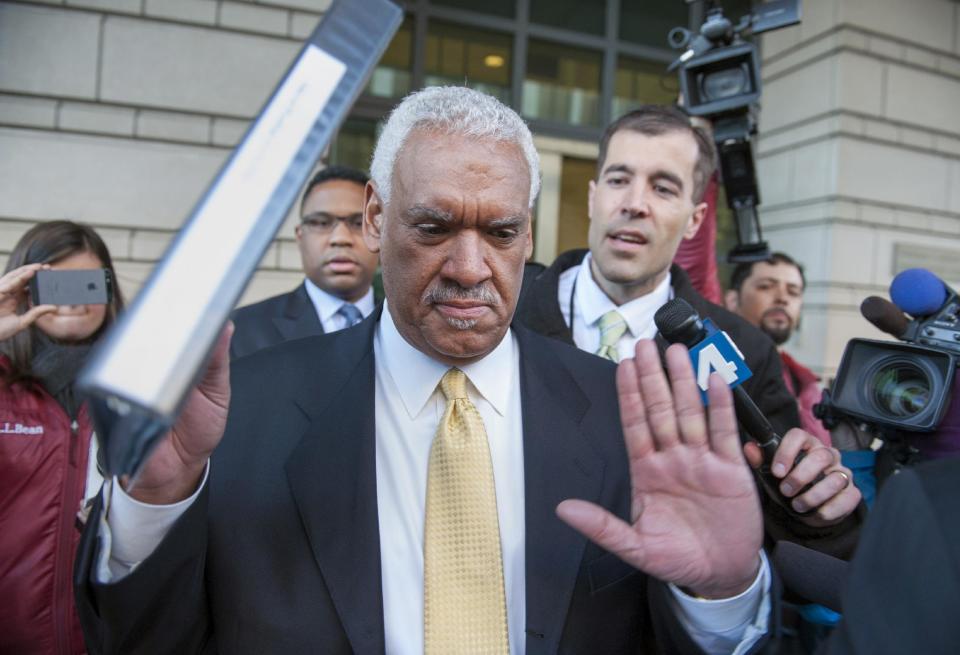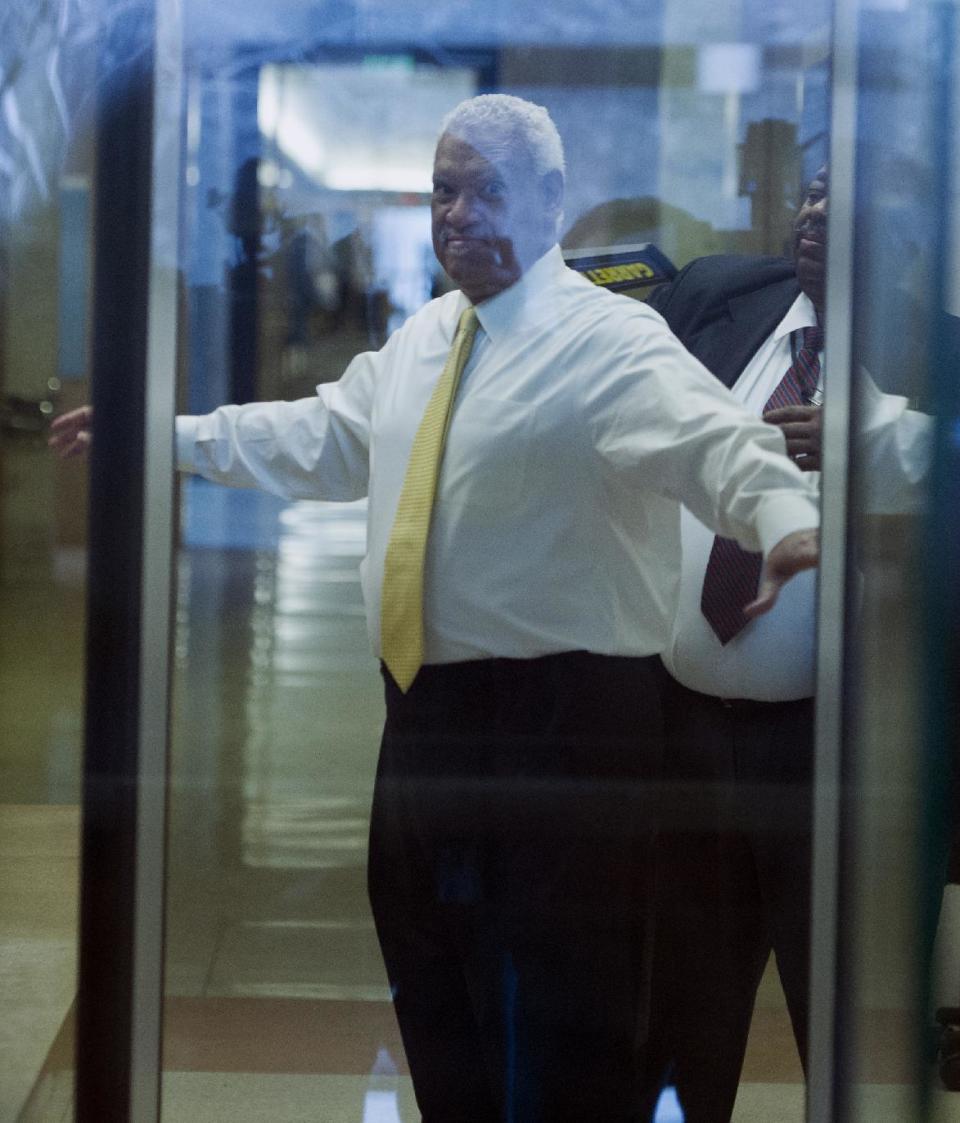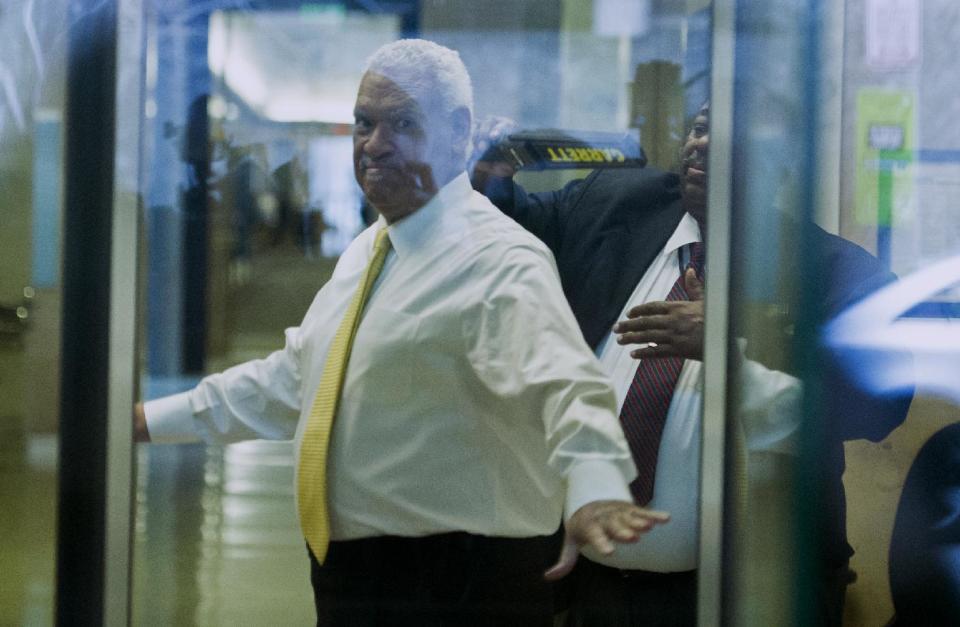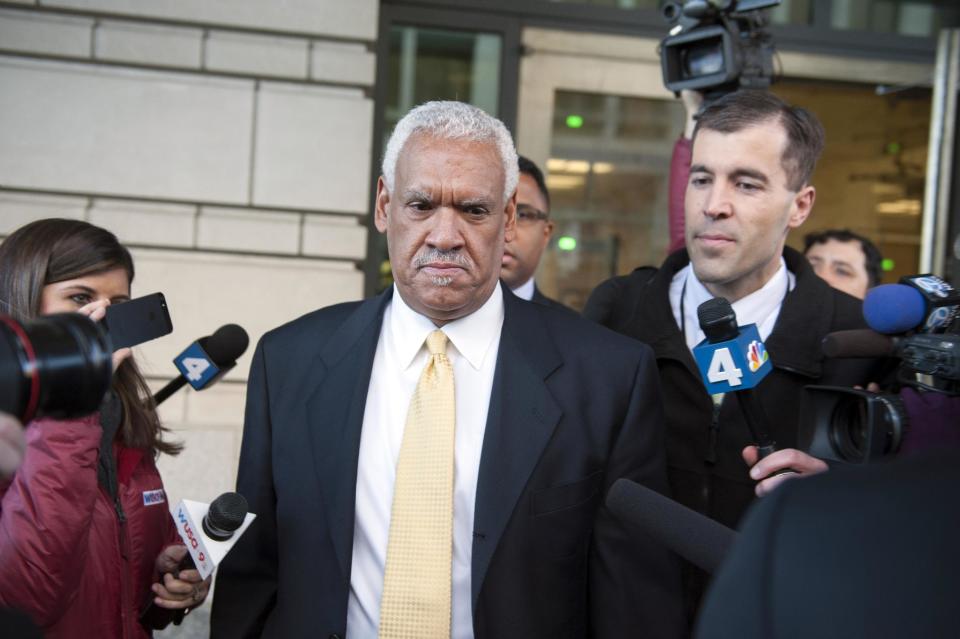Prosecutors: DC mayor knew of 'shadow campaign'
WASHINGTON (AP) — For most of Vincent Gray's three-plus years as District of Columbia mayor, federal prosecutors have been investigating alleged dirty tricks in his 2010 campaign.
While the mayor never spoke in great detail about the investigation, he maintained he did nothing illegal and was aware of nothing illegal. And even when four people who worked on his campaign pleaded guilty to felonies, prosecutors never presented any evidence implicating the mayor.
That all changed Monday — three weeks before a primary that will determine whether Gray can continue seeking a second term.
In a lengthy and extraordinarily detailed charging document, prosecutors alleged not only that Gray was aware of a $668,000 off-the-books "shadow campaign" on his behalf, but that he personally requested more than two-thirds of the funds.
The documents laid out the activities of Jeffrey Thompson, an influential district businessman who pleaded guilty to two conspiracy charges. Thompson admitted funding the shadow campaign for Gray as well as similar efforts supporting Hillary Rodham Clinton's 2008 presidential bid and seven other campaigns for local office in the district.
Gray defeated then-Mayor Adrian Fenty in 2010, a race in which Fenty raised more than twice the amount of legitimate funds Gray did. He is now seeking re-election against seven challengers in the April 1 Democratic primary. Gray has not been charged with a crime and denied the allegations in the Thompson documents, dismissing them as lies.
According to the documents, Gray met Thompson for dinner at the apartment of another conspirator in August 2010 and presented Thompson with a one-page budget of $425,000 needed for get-out-the-vote efforts. Thompson agreed to pay that amount by funneling it through another company, the documents said.
During an earlier meeting with Thompson, he told Gray that he would fund his campaign but that the contributions would not come from him or anyone associated with him, the documents said. Thompson told Gray to say the money came from "Uncle Earl," and after the meeting to discuss the shadow campaign, Gray thanked Thompson and referred to him as "uncle," the documents said.
"I have always been clear that I was not aware of any illegal activity related to my 2010 campaign. I have spent my entire adult life serving the community and have done so with an unblemished record," Gray said in a statement. "I cannot say this any more clearly: The allegations against me are false and I will steadfastly fight them."
U.S. Attorney Ronald Machen declined to say whether the mayor would be charged. The investigation is ongoing.
"What you learned about today was really only the tip of the iceberg," he said.
The total value of Thompson's illicit contributions was $3.3 million, prosecutors said. Clinton was not aware of the $608,000 in shadow expenditures on her behalf, prosecutors said.
"Today's guilty plea pulls back the curtain on years of widespread corruption," Machen said. "With Mr. Thompson's cooperation, we have the opportunity to hold many wrongdoers accountable and to usher in a new era of honesty, integrity and transparency in D.C. politics."
Thompson's expenditures on Gray's campaign were never reported to the city's campaign-finance office, prosecutors said. The money went toward consultants, supplies and a massive get-out-the-vote operation centered east of the Anacostia River, where Gray defeated Fenty by huge margins.
Following the election, Thompson gave $10,000 to a close relative of Gray to help settle campaign debts, prosecutors said. And after Gray took office, Thompson spent $40,000 on home improvements for a "close personal friend" of the mayor, according to the documents.
Prosecutors alleged that in 2006, Thompson ran a $278,000 shadow campaign for mayoral candidate Linda Cropp, who ended up losing to Fenty. But they said they had no evidence Cropp knew about the shadow effort. She also received contributions from Thompson and his associates that were included on her financial statements.
Thompson paid $350,000 to another candidate, Michael A. Brown, to drop out of the race and endorse Cropp, according to the documents. He later funded shadow campaigns for Brown, who was elected to a D.C. Council seat in 2008. Brown lost his re-election bid in 2012 and is now awaiting sentencing in an unrelated bribery case. He is cooperating with prosecutors, who said he requested the shadow funds from Thompson.
Brown did not immediately return a telephone call Monday night seeking comment on the new allegations.
Federal authorities searched Thompson's home and offices two years ago. Since then, Machen has built a case against Thompson by targeting his associates, five of whom have pleaded guilty to felonies. Two of Gray's close friends who worked on his 2010 campaign were among those who pleaded guilty. Two other Gray campaign aides pleaded guilty to crimes that did not directly involve Thompson.
Thompson's network of donors included employees, business associates, friends and relatives, many of whom made large donations to his chosen candidates on the same day, campaign finance records show. After the allegations surfaced, several candidates donated the amount they received from Thompson to charity.
Thompson, a Jamaican immigrant, founded an African-American-owned accounting firm that received millions of dollars in local and federal government contracts. He was also the sole owner of D.C. Chartered Health Plan, a managed-care provider for district residents that had the single largest contract in city government, worth more than $300 million annually. The managed-care firm went bankrupt amid the investigation, and Thompson left the accounting firm.
After Gray's election, Thompson contacted him through an intermediary and asked the mayor to expedite a settlement that benefited the health care company, according to the documents. The D.C. Council ultimately approved the $7.5 million settlement by a thin margin, and administration officials strongly denied any wrongdoing related to the action.
One of the loudest critics of that settlement was Councilmember David Catania, an independent. On Monday night, Catania announced through his former chief of staff that he would file papers this week to enter the mayoral race. Catania will challenge the Democratic primary winner in the November general election.
___
Follow Ben Nuckols on Twitter at https://twitter.com/APBenNuckols .







